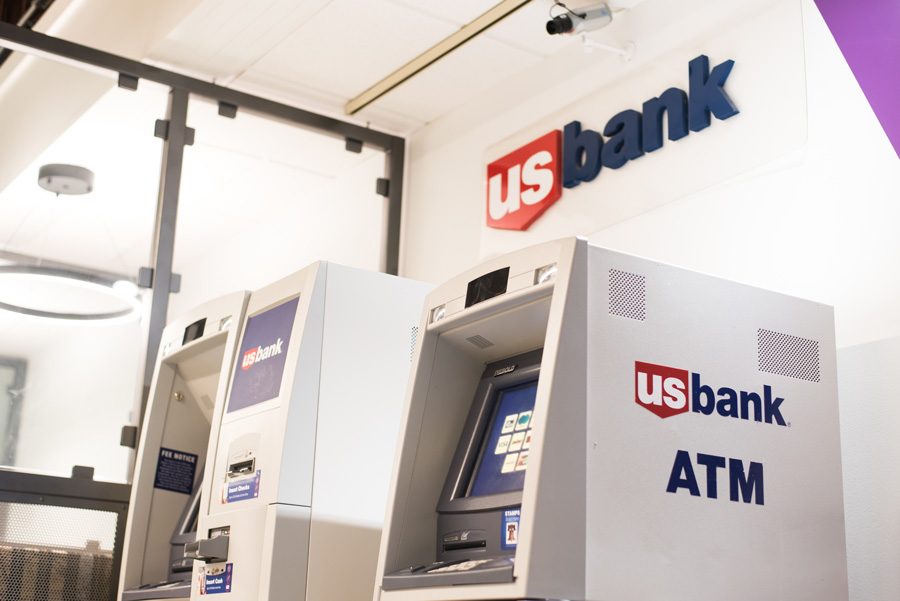University partnerships with banks put students at risk, report says
Brian Meng/Daily Senior Staffer
The US Bank ATM machine in Norris University Center. Northwestern has a marketing agreement with US Bank.
May 22, 2019
Banks have been taking advantage of universities that have added “closed loop” monetary functions to student identification cards, according to a recent report conducted by the Frontier Group and the U.S. Public Interest Research Group Education Fund.
They do so by adding several other functions to these cards that enable them to act as normal debit cards. The study estimates that nearly 80 percent of students across the country choose university-partnered banks for their debit cards.
For many students, college represents financial independence, the report says. However, this independence may or may not be matched with financial awareness. There is a range of factors that goes into making these decisions, including convenience.
At Northwestern, a student’s WildCARD can be linked to their U.S. Bank account. On average, students pay a nearly $25 fee to use U.S. Bank campus debit cards nationally. Across the country, about 3 percent of college students on campuses offering U.S. Bank campus debit cards elected to use one, according to the report.
While this is significantly lower in comparison to other banks, such as Wells Fargo, whose fees are nearly $45, these cards are still financially harmful to students, the report argues.
McCormick first-year Khizr Maqsood told The Daily that US Bank’s on-campus presence made it a favorable option over the others.
“It’s easier,” Maqsood said.
The report estimates that nearly 1.1 million students use campus debit cards across the country, many in the form of a student identification card.
When universities partner with banks, they enter into either paid marketing agreements or unpaid agreements. These agreements have different implications for students.
Paid agreements between universities and banks often make students vulnerable to a range of fees, such as out-of-network payments and overdraft fees, usually coming in at about $35 each.
These agreements also require universities to market the bank’s products through official school communication. While students do have other financial options open to them, a university’s endorsement markets the partnered bank as a favorable option, the report says. According to the report, U.S. Bank engages in paid agreements with its partner schools, though Northwestern students agreed the University did not seem to overly push U.S. Bank marketing materials.
Officials from Northwestern’s financial services and media relations office did not respond to requests for comment on clarifying the nature of the relationship between US Bank and NU.The University’s website says it “receives financial support from its relationship with U.S. Bank that helps offset operating expenses for the Wildcard ID card program.”
Banks such as US Bank incentivize the agreement for their partnered university. According to the report, these banks pay a royalty fee to a university based on the number of students that have accounts them.
“Students deserve strong consumer protections that ensure campus debit card agreements are made in their best financial interest,” the report said.
With the rising cost of college education, such partnerships put students at an even greater risk of financial vulnerability, the report says.
At Northwestern, however, Communication junior Stephany Carranza said she didn’t find the relationship to be exploitative.
“I don’t remember receiving any promotion material,” she said. “The only push I saw was during the college fair.”
Email: [email protected]
Twitter: @KatarePriyanshi


